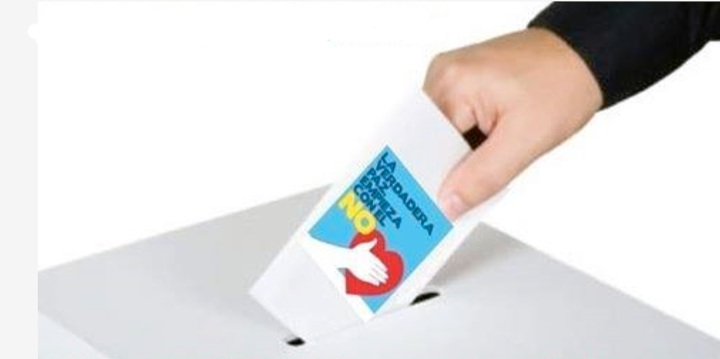Everyone is trying to understand what happened in the referendum to ratify the Colombian peace agreement. A few questions immediately come to mind. Why did so few people vote (only 32%) and why did 50.2% vote NO to a peace agreement after 52 years of conflict? The issue needs to be addressed at a deeper level if we want to understand its root. First, people would have voted NO to any question; they would have voted no if the question was about changing the traffic light. The NO vote not really about the agreement between the FARC and the Government but more about the existential state of people’s lives. People are really in a large scale crisis in many parts of the world. People are suffering, are not finding solutions to their suffering, and are putting the blame on others (immigrants, Muslims, FARC, and so on). Did you see what happened in Hungary, with the immigrant crisis in Europe, with ISIS, the Brexit referendum, in Brazil, and so on? The issue is global and not just in Colombia. We are in a serious situation that can’t be resolved just by promoting peace with a banner on the street. The social dehumanization is spreading like a fire taken by the wind. A new worldwide growing class of people with meaningless lives, violent and full of contradiction, is gaining social and political space, They want peace but vote NO during the referendum.
For the people of the YES, we have to remember that some of the NO people are our own mothers and fathers, brothers and sisters, co-workers and neighbors. They were for the YES before but something happened in their lives, some accident (lost job, got divorced and so on) and they got scared. They closed the door, they became depressed and changed the direction of their lives, caught in revenge and selfish calculation. Of course there are also people for the NO who have a large interest in being for the NO: war is one of the largest businesses in the world, mainstream media love violence and conflicts because they make money from it, and political fronts also financed by these institutions are scaring people to manipulate the vote.
How do we reverse this destructive direction? How could we open the future for our families, our friends, of our loved ones? It is up to each one of us to answer these questions and start to give a deeper meaning to our actions and own life.
I conclude with this last paragraph of Silo’s talk the Healing of Suffering, given in Punta de Vacas, Argentina in 1969: “My brother, my sister—if you look back in history, you will see the human being bearing the face of suffering. Remember, even as you gaze at that suffering face, that it is necessary to move forward, and it is necessary to learn to laugh, and it is necessary to learn to love.
To you, my brother and sister, I cast this hope—this hope of joy, this hope of love—so that you elevate your heart and elevate your spirit, and so that you do not forget to elevate your body.”






